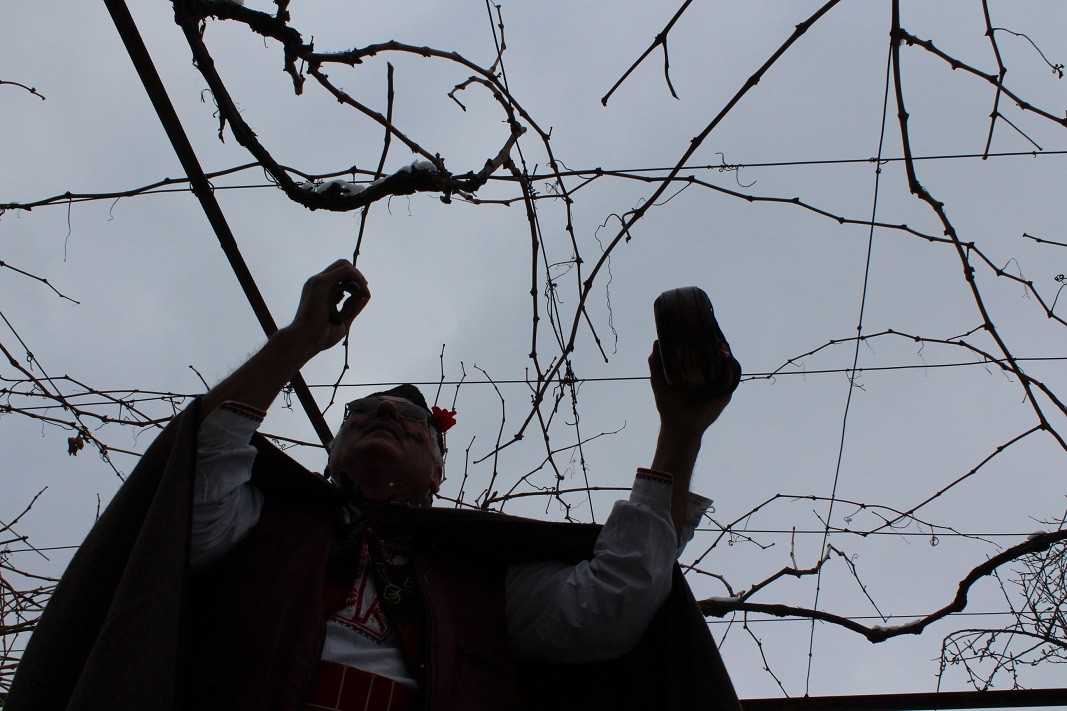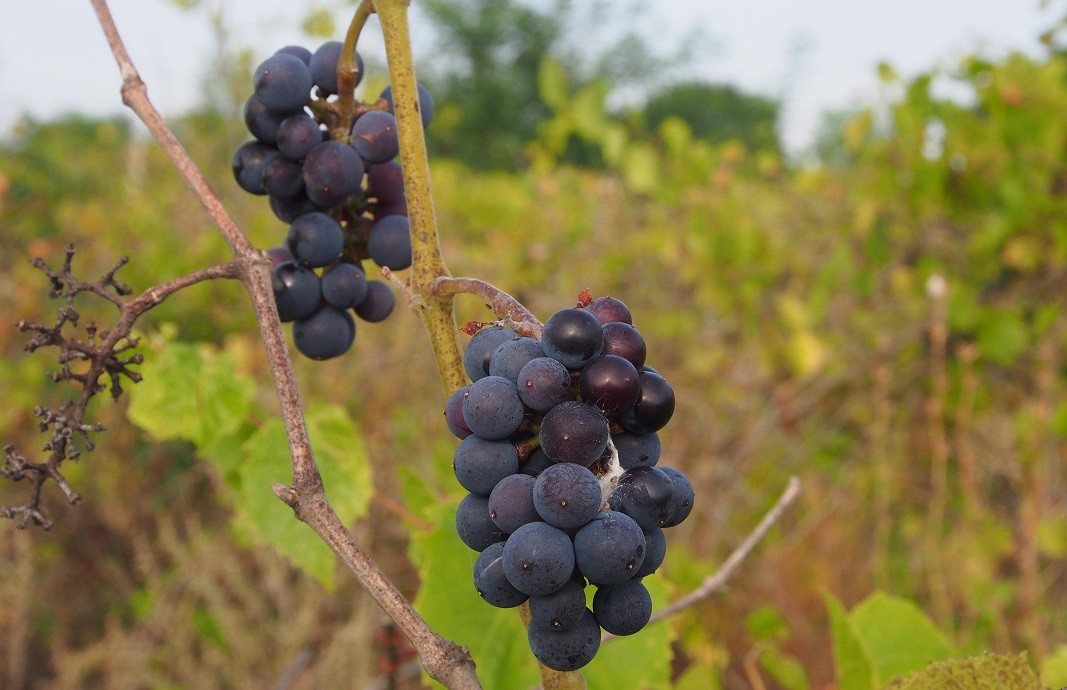The elixir of life, as Bulgarians used to call good wine, was a sacral beverage back in the times before Christianity had spread over the Bulgarian territories. Worshipping the resilient fruit-bearing vines was always part of Bulgarian tradition. Accordingly vines were often carved by woodcarvers and painted by the Old Masters as a symbol of the unbreakable human spirit.
Researches show that the ancient Bulgarians were people of extremely strong physique. This may be partly due to the wine-producing tradition, and especially to the fact that they drank wine without watering it down, some scientists explain. Wine and bread are still part of the Bulgarian festive tradition, symbolizing life itself.
The importance of wine and its contribution to the history of the country is reflected by the traditional wine festivals in Bulgaria.
One of them is Trifon Zarezan (Trifon the Pruner) which is celebrated on February 14th. On that day, wine growers and winemakers in Bulgaria, with a lot of festive joy and cheer, go to the vineyards to do the first ritual pruning of the vines. And in autumn church bells and festivities mark the start of the grape harvest.

Although the traditions are still kept locally, it is equally as important to preserve the very existence of the old local vine varieties, which provided a livelihood and helped the survival of hundreds of families.
“My experience shows that the local vine varieties are endangered, says Margarita Levieva, a wine taster in international competitions and editor-in-chief of a specialized edition.” The wine specialist explained that in the past it was the preservation of the family wine tradition that had determined the way of life of the families in Bulgarian wine-growing regions.
“These local vineyards of 1-2,000 square meters where 10, 15, 20 old vines of traditional Bulgarian grape varieties have been planted are valuable as an immovable cultural heritage, because some of them are so rare, that they may not even be in the collectionof the Institute of Viticulture and Enology in Pleven. Those vines are 60 to 100-year old plants, Levieva says. - They have been part of the lives of several generations. The families have planned their daily routines in accordance to working in the vineyard. Wine tradition has been part of the local cultural calendars. Having a vineyard, making wine and presenting it to your fellow citizens - it was an honor, it was defining who you were as a person and as a member of society,” the wine expert explains.

“But some 50 years ago, people started growing foreign grape varieties such as Cabernet, Chardonnay, Traminer, etc, so they became the most common varieties nowadays. Luckily, some of the old varieties are still preserved by some local winemakers in their gardens - as we call them – the garden vineyards. This shows how widespread viticulture is as a cultural tradition in Bulgaria. We research and collect such vineyards. That is why we decided to develop and promote the garden vineyards as a national cultural and historical heritage of Bulgaria.”

The work of the local winemakers who, despite the abundance of wineries and industrial wine brands, continue to produce the grape elixir at home should be truly respected, according to Margarita Levieva. She claims that despite the scientific approach applied in the fermentation processes of industrial wine, the qualities of home-made wine are closest in taste and composition to the wine that once gave strength and joy to ancient Bulgarians.
Compiled by: Gergana Mancheva /based on an interview by Milena Vodenicharova, BNR-Hristo Botev/
English version: Elizabeth Radkova
Photos: BGNESIn the middle of August in Kyustendil, Southwestern Bulgaria, the "Panagia - Raising of the Bread" holiday takes place. The holiday is directly related to the church holiday "Assumption of the Blessed Virgin Mary", marked on August..
A three-day embroidery festival takes place in the square of the village of Vardim near Svishtov, the organizers reported. At its core, the festival promotes a particularly colorful part of our lifestyle and traditions -..
Fans of Bulgarian folklore are getting together in the village of Ribaritsa near Teteven on 20 and 21 July for the 3 rd national festival and the 16 th edition of the festival of folklore of national customs and authentic traditional costumes in a..

+359 2 9336 661
